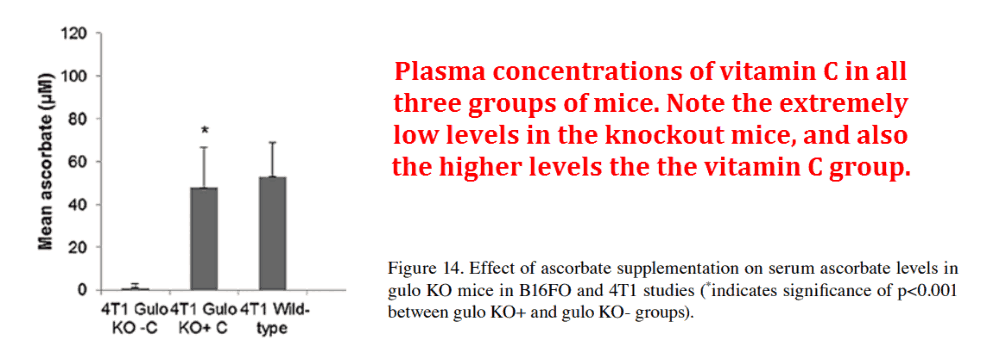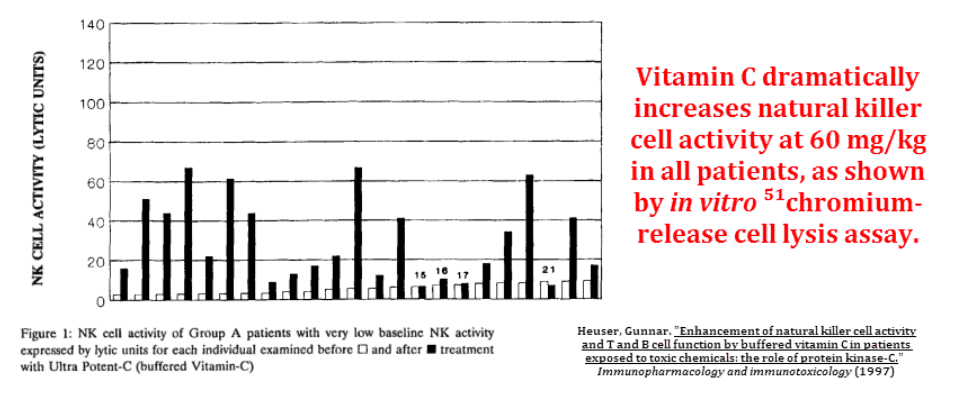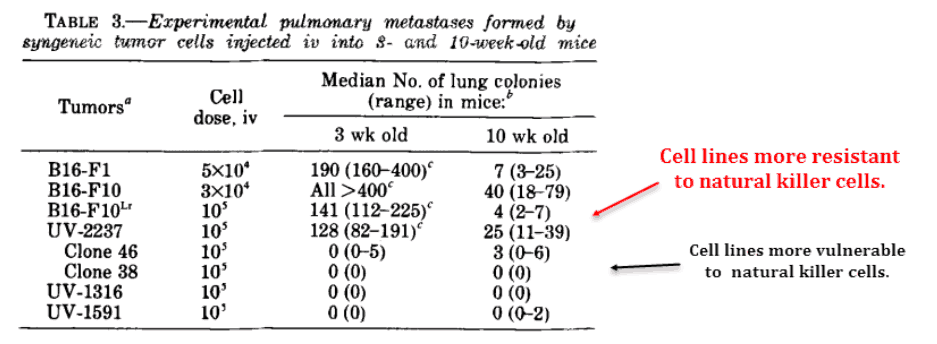
[cmamad id=”20153″ align=”center” tabid=”display-desktop” mobid=”display-desktop” stg=””]
The body is always making cancer cells. But this vitamin stops these cancer cells cold – before they form tumors.
—–Important Message—–
80% of men have cancer cells in their body even if they don’t “have cancer” – can this prevent cancer from developing?
Cancer cells are always forming.
Hopefully, the immune system deals with them, but often it does not.
And then the cancer cells turn into tumors – and at this point the man has a “cancer metabolism.”
Dr. Otto Warburg won the Nobel Prize for his discovery of cancer metabolism and how to stop it.
But his findings have been ignored again and again in the constant quest for more expensive treatments – that don’t work.

They call the cancer metabolism the “Warburg effect” – Dr. Warburg found that cancer cells grow in a body that has low oxygen levels.
To prevent or even reverse cancer, a man needs more oxygen reaching his cells.
How can a man increase oxygen to the cells?
It turns out this is EASY to do… And it has a side benefit of bringing back youthful sexual performance…
———-
This vitamin inhibits metastasizing (stops cancer)
Hopefully, we can all avoid cancer. But anyone who has it now needs to avoid metastasis until they can get rid of cancer for good.
This is especially true if they plan to undergo surgery, as the chance of metastasis greatly increases when cancer cells are disturbed.
Yet you can take active measures to contain cancer while inhibiting its spread… This allows you time to search for the best ways to eliminate it.
Vitamin C is one such way. And vitamin C is safe to take orally in gram-sized amounts.
Most humans get far less vitamin C than we used to in the past. And we need about 3 grams a day.
Scientists extrapolated this 3-gram amount from the animals that can make their own vitamin C (most animals)… And from the assumed composition of our primitive diet.
Vitamin C has been proven to inhibit metastasis… in multiple ways…
- Catalyzes collagen synthesis
- Stimulates natural killer cells
- Inhibits hyaluronidase
Because vitamin C is a prerequisite for catalyzing collagen synthesis, it can slow the growth of tumors by encapsulating them in a collagenous shell.
This has now been scientifically proven…
Not only did animals supplemented with vitamin C have slower-growing tumors, but they had far less metastasis than the control animals.
Tumor encapsulation is the normal state of affairs. And it’s what we want.
[cmamad id=”20154″ align=”center” tabid=”display-desktop” mobid=”display-desktop” stg=””]
But people who are deficient in vitamin C can’t make this containment happen.
For those people, virulent tumors can grow relatively unimpeded.
“Tumor encapsulation is critical in curbing invasion and metastasis of malignant cells.”
Vitamin C also stimulates natural killer cells…
We have ten types of cells in our immune systems…
And these ones, these killer cells, are the only type that can seek out abnormal cells and destroy them.
Vitamin C inhibits hyaluronidase, an enzyme that many cells secrete to break down the extracellular matrix.
Since this enzyme’s substrate, hyaluronic acid, forms a significant percentage of the extracellular space, it can turn their surroundings into “jello.”
This allows uninhibited growth of quickly growing cells.
Bacteria and fungi also secrete hyaluronidase. That’s an enzyme correlated to their invasive potential.
For this reason alone, it is a good idea to take vitamin C during any kind of infection.
And, again, it also enhances natural killer cells.
“Degradation of adjacent matrix in the vicinity of invading neoplastic cells is dependent upon continual release of hyaluronidases, proteases, and collagenases from the invading cells.”
The current recommended daily allowance of 60 mg per day is a joke.
With that amount, we can barely avoid scurvy and we’ll still get chronic diseases of all types.
They might just as well recommend an intake of one .44 bullet instead – at least you could then avoid the suffering.
Recently, all of this has all been experimentally demonstrated.
And these experiments confirm the sporadic observations published throughout the last century:

In this study, the researchers fed the same diet to three different groups of mice:
- Gulonolactone oxidase knockout mice
- Gulonolactone oxidase knockout mice who also got vitamin C
- Wild-type mice
Gulonolactone oxidase knockout mice are genetically engineered to lack the enzyme gulonolactone oxidase.
That enzyme is responsible for synthesizing vitamin C in all animals other than primates, guinea pigs, and fruit bats.
Knocking out this enzyme is the only way to study vitamin C deficiency in most animals.
They gave one group of knockout mice enough vitamin C in their drinking water to give them plasma concentrations of vitamin C close to that of wild mice.
This is better than simply comparing one group of knockout mice to wild-type mice.

This way there are two groups identical in every way (except for the extra vitamin C in one group) that researchers can compare to each other and to the wild-type mice.
The knockout mice are like people who eat nothing but fast food…
They can’t make vitamin C and they eat a refined and/or all-cooked diet.
The knockout mice that were also getting vitamin C would be analogous to a human taking a few grams of vitamin C per day while eating a crappy fast food diet.
Yet even high-priced restaurants have many items on their menus with no vitamin C – because when you cook something you destroy most of the vitamin C.
People of all ages, classes, and races can become deficient in vitamin C if they avoid raw foods and don’t supplement.
“Highly invasive tumors are associated with a scanty, poorly defined collagenous barrier. In contrast, collagenous barriers are more defined in tumors of moderate rapidity of growth and very abundant in slow-growing ‘contained’ atrophic scirrhous tumors.”
Then the researchers injected the mice with two different types of tumor cells: melanoma and breast cancer.
That resulted in six groups of mice – two identical sets of three.
Then they waited a few weeks, killed the mice, and counted the metastasis:

And the vitamin C (AKA ascorbate) substantially inhibited metastasis.
The researchers noted an increased encapsulation of the tumors with collagen.
“Ascorbate-supplemented gulo-knockout mice demonstrated profound and significant reduction in tumor metastasis than did the gulo-knockout mice on the control diet. The tumor grade was reduced by 71% with ascorbate supplementation…”
That’s not a big surprise.
Collagen fibers have two amino acids that must be modified by vitamin C specifically. Nothing else will do it.
Vitamin C also increases procollagen mRNA dramatically, about threefold at 250 μM…
In the vitamin C-supplemented group, breast tumor weight went down by 28%, interleukin-6 by 85%, and VEGF by 98% in the melanoma trial.
VEGF (vascular endothelial growth factor) is a peptide growth factor highly involved in tumor invasiveness.
It signals for tumors to increase their blood supply, often leading to more than their fair share of glucose.
“…gulo-knockout mice supplemented with ascorbate hosted smaller tumors with smaller, lighter cores, less necrosis, and enhanced collagen encapsulation – signifying less metastatic potential.”
So vitamin C inhibits cancer growth (especially metastasis) by increasing the collagen synthesis our bodies need to safely contain it.
There are other ways that vitamin C can accomplish the same result.
And one way is by potentiating natural killer cells:

As previously mentioned, these cells have the capability of recognizing non-self cells and destroying them.
They can do this against invaders such as bacteria and yeast, against virus-infected host cells, and even against mutated cells that have become cancerous.
This is such a reliable effect that the activity of natural killer cells is often measured by how well they kill tumor cells in vitro.
“The ability to spontaneously lyse a broad range of virally infected targets or tumor cells is the best-known functional attribute of NK cells.”
And the activity of these cells is highly correlated with metastasis.
So that is another way that vitamin C could have induced the results above.
There was so much buzz around natural killer cells after they were discovered that dozens of studies have looked into their role in minimizing metastasis.
This is just one of them:

This study included many groups of mice.
The researchers gave these mice many different treatments.
They used eight different tumor cell lines, three different alpha-interferon inducers, and one immuno-suppressant that is somewhat specific to natural killer cells.
The protocol was simple:
They injected tumor cells, gave the mice a treatment, and then examined metastatic spread a few weeks later.
As expected, the natural killer cells destroyed some cell lines more thoroughly, and better protected the older mice with higher cell counts.

All of the drug treatments that could increase alpha-interferon actually lowered metastasis.
And the immune suppressant cyclophosphamide greatly increased metastasis, in all cases.
Ironically, cyclophosphamide is used to “treat” cancer because of its effect on T cells.
However, this study showed that only natural killer cells can significantly reduce metastasis.
“In contrast, in nude mice which possess higher levels of natural killer reactivity, metastatic growth was suppressed 7-fold in comparison with intact C57 mice.”
(“Nude” mice have inhibited immune systems. “C57” mice are regular lab mice.)
In other words, whole spleen cells with all cells intact (macrophages, NK cells, and T cells) were less effective in inhibiting metastasis than natural killer cells alone.

Other studies conform perfectly to this one.
And results similar to cyclophosphamide treatment can be induced by using antibodies to asialo GM1 (a cell membrane lipid somewhat specific to natural killer cells).
“In mice treated with anti-asialo, the number of tumor foci in the lungs was dramatically increased above that in control mice. The entire surface of the lungs was covered with metastases and precise enumeration was impossible.”
So some of these studies proved beyond a shadow of a doubt that natural killer cells can destroy circulating tumor cells before they can metastasize…
And some of them proved that vitamin C can enhance the activity of natural killer cells.
So, vitamin C would probably give the same beneficial results as the interferon-inducers used in the study above, had it been tested.
And there is a third function of vitamin C that is important – its ability to inhibit hyaluronidase:

Well, it’s actually a weak inhibitor compared to vitamin C stearate and vitamin C palmitate… But since the latter is freely available online I thought I’d mention this effect.
Also, hyaluronidase is so important in tumor metastasis that it would be a crime not to tell people how to inhibit it.
Vitamin C palmitate is essentially two safe and beneficial molecules covalently bound together: vitamin C and palmitic acid.
Besides inhibiting hyaluronidase, this form also shifts the vitamin C distribution towards the lipophilic tissues such as the brain and adipose cells.
“Previously, we identified ascorbic acid palmitate as an up to 1,500 times more potent inhibitor of bacterial and bovine hyaluronidases than the parent compound, vitamin C …”
So to get vitamin C diffused everywhere in the body, it’s a good idea to take both forms: vitamin C itself and either vitamin C stearate or vitamin C palmitate.
Hyaluronic acid composes a significant percentage of the extracellular matrix.
So when hyaluronidase is excreted by a cell it creates room for new growth.
This is why it’s correlated with invasiveness of Candida strains – along with collagenase – and the ability of prostate cancer to metastasize.
The ability of hyaluronidase to enhance virulence is so striking that it was known as a “spreading factor” years before its substrate (hyaluronic acid) was ever discovered.
So we should take the role of vitamin C in cancer prevention and treatment seriously.
Although potassium generally gets the credit for being the prime reason for the success of Gerson therapy, the high vitamin C intake probably also plays a role.
There is a published case report of spontaneous remission from taking just vitamin C.
“B16FO (melanoma) metastasis was reduced by 71% in supplemented mice compared to control mice.”
—–Important Message——
Confused? What supplements and vitamins do you REALLY need?
How much Vitamin C and calcium should you get?
What if you eat a lot of cheese, or drink milk?
Should you take vitamin C or vitamin C stearate or vitamin C palmitate?
And should you take them at the same time or at different times?
How much vitamin C is too much? If you eat a lot of fruit, do you really need extra vitamin C?
How can you get enough minerals and vitamins from real food?
So confusing…

So here is a little report showing you the vitamins to use and those you should avoid
—————

- Cha, John. "Ascorbate supplementation inhibits growth and metastasis of B16FO melanoma and 4T1 breast cancer cells in vitamin C-deficient mice." International journal of oncology (2013)
http://medicinabiomolecular.com.br/biblioteca/pdfs/Cancer/ca-3693.pdf - Heuser, Gunnar. "Enhancement of natural killer cell activity and T and B cell function by buffered vitamin C in patients exposed to toxic chemicals." Immunopharmacology and immunotoxicology (1997)
https://www.ncbi.nlm.nih.gov/pubmed/9248859 - Hanna, Nabil. "Role of natural killer cells in the destruction of circulating tumor emboli." Journal of the National Cancer Institute (1980)
http://citeseerx.ist.psu.edu/viewdoc/download?doi=10.1.1.891.6588&rep=rep1&type=pdf - Gorelik, E. "Role of NK cells in the control of metastatic spread and growth of tumor cells in mice." International journal of cancer (1982)
http://onlinelibrary.wiley.com/doi/abs/10.1002/ijc.2910300118 - Spickenreither, Martin "Novel 6-O-acylated vitamin C derivatives as hyaluronidase inhibitors with selectivity for bacterial lyases." Bioorganic & medicinal chemistry letters (2006)
http://sciencedirect.com/science/article/pii/S0960894X0600881X
- Vitamin C - Office of Dietary Supplements - NIH
https://ods.od.nih.gov/factsheets/VitaminC-HealthProfessional/ - By the way, doctor: What's the right amount of vitamin C for me?
https://www.health.harvard.edu/staying-healthy/whats-the-right-amount-of-vitamin-c-for-me

Thank a lot of good information and i like it very good
I like this website very much It is a very good website.
Thank you for the good space and free too.